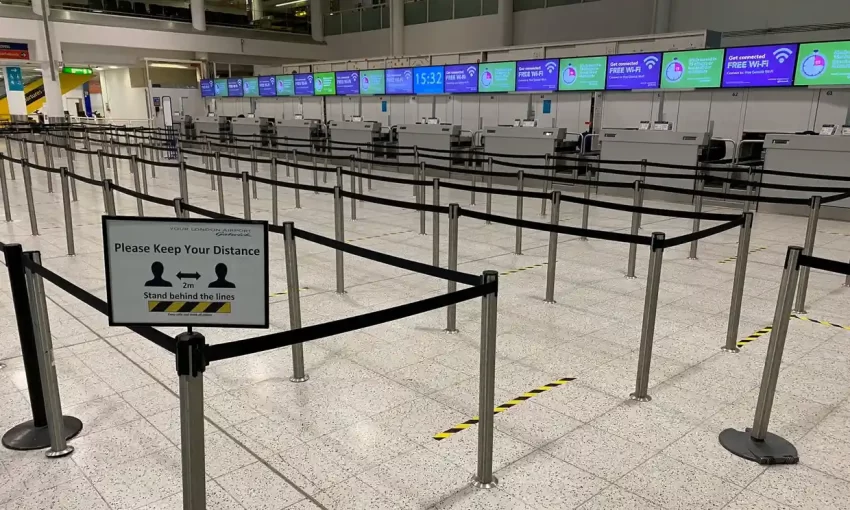International travel should be protected in future pandemics, MPs have urged, describing the Covid restrictions imposed by the UK government as confusing, arbitrary and disproportionate.
The Commons transport select committee said the government should learn lessons from the coronavirus pandemic to create a predictable and transparent system for future public health crises, to support travellers and the aviation industry.
In a critical report, it said the curbs on foreign travel during the pandemic were “disproportionate to the risks to public health”.
The cross-party committee said restrictions should be comparable to those applied domestically, and international travel should not be “singled out”.
The report concludes that the “decision-making process was not transparent or consistent, nor based on scientific consensus”, resulting in rules that caused “a severe financial shock to the sector”.
The committee also criticised ministers for abdicating all responsibility for the queues, cancellations and delays seen this Easter as airlines and airports struggled to recruit staff in time for a resurgence in passenger demand, after the sudden lifting of all Covid isolation and testing requirements.
It said the government was attempting to “lay the blame on an aviation sector decimated by restrictions and a lack of certainty offered by ministers”, but should review its own recruitment and training processes. Airlines and airports have complained of delays in government security checks for job applicants.
The committee’s chair, Huw Merriman, said: “Government action was inconsistent. It left industry and passengers confused and unable to plan ahead. This resulted in a severe economic deficit for the aviation sector.
“Ministers must get on with protecting the sector against future economic shocks and reassuring passengers that future restrictions will only be implemented in extreme circumstances. Legislation is urgently needed to give the industry more flexibility to recruit new staff for the summer, to give the regulator more teeth to intervene on behalf of consumers and to provide protection from airline insolvencies.”
He added: “Above all, we want ministers to be transparent with industry and passengers. Over Easter we witnessed a sector in the early stages of recovery and vulnerable to disruption. The increase in demand is encouraging but a sustained and supportive approach from government is vital to nurse the sector back to recovery.”
The report calls for measures including publishing a promised aviation recovery plan; introducing an airline insolvency bill to protect consumers, employees and taxpayers; and giving the regulator more powers to fine airlines for not refunding customers when required.
The Airport Operators Association said the report was “welcome recognition of the devastating impact the pandemic had on aviation”. Its chief executive, Karen Dee, said: “We join the committee in calling for a comprehensive recovery package that allows our sector to recover sustainably and prevents the UK from falling behind our international competitors.”
The latest indictment of the UK’s Covid travel policies follows a critical National Audit Office report last week that found central government lost track of spending and made up rules on the hoof – as well as leaving the taxpayer on the hook for around £400m for quarantine hotels that ministers thought would be paid for by travellers.
A Department for Transport spokesperson said: “Our priority was protecting public health, and these measures bought vital time for the rollout of our successful booster programme as we responded to new and concerning variants. But we also ensured they were in place for no longer than absolutely necessary, and the UK was the first country in the G7 to remove all travel restrictions.
“In future the government’s default approach will be to use the least stringent measures, to minimise the impact on travel as far as possible, and these will only be implemented in extreme circumstances.”


